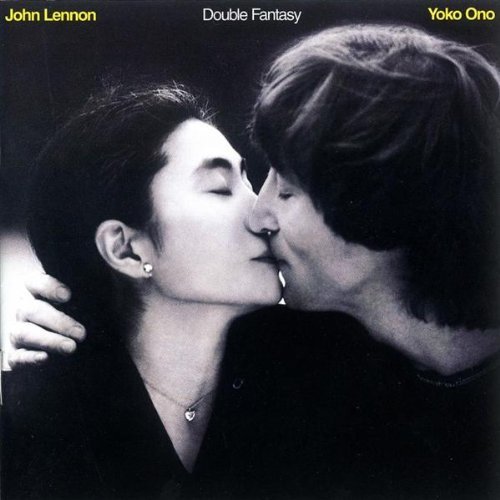
Double Fantasy (1980)

1. (Just Like) Starting Over
2. Kiss, Kiss, Kiss
3. Cleanup Time
4. Give Me Something
5. I'm Losing You
6. I'm Moving On
7. Beautiful Boy (Darling Boy)
8. Watching the Wheels
9. Yes, I'm Your Angel
10.Woman
11.Beautiful Boys
12.Dear Yoko
13.Every Man Has a Woman Who Loves Him *
14.Hard Times are Over *
15.Help Me to Help Myself *
16.Walking on Thin Ice *
17.Central Park Stroll (Dialogue) *
* CD Bonus Track
Double Fantasy was released on November 17, 1980, as a quiet celebration of renewal—John Lennon’s return to music after a five-year hiatus, his rekindled relationship with Yoko Ono, and the newfound domesticity of fatherhood. Three weeks later, Lennon was dead—shot outside his home at the Dakota in New York City. In the aftermath, the album was no longer simply a comeback; it became a memorial.
It’s difficult, even decades on, to separate the music from the circumstances that surround it. Double Fantasy was intended as a portrait of partnership, with Lennon and Ono sharing the spotlight in alternating tracks. As with Some Time in New York City, this was a joint statement, though in tone and execution it is far more composed and less combative. Gone are the slogans, the political manifestos. In their place: intimacy, affection, and the quiet rhythms of ordinary life.
Lennon’s contributions are uniformly strong. (Just Like) Starting Over, a retro-styled rocker, leads the album with buoyant optimism—part homage, part rebirth. Woman is tender without tipping into sentimentality, and Watching the Wheels offers a graceful justification for his self-imposed absence from the public eye. Most affecting of all is Beautiful Boy (Darling Boy), a lullaby for his son Sean that now carries a nearly unbearable poignancy. Lennon’s voice, once caustic and biting, is warm and reflective. He sounds content. Tragically, he sounds ready for the future. Other highlights include I’m Losing You, a darker track that bristles with frustration and emotional tension. A heavier, alternate version featuring members of Cheap Trick would later surface, arguably more dynamic, but the restraint here fits the album’s quieter emotional register. It’s an honest, human moment amid the broader themes of healing.
Yoko Ono’s half of the album remains polarizing, though it is—by most standards—her most musically accessible work to date. Songs like Kiss Kiss Kiss and I’m Your Angel show an effort to meet Lennon’s tone, but her vocal delivery—raw, stylized, and often jarring—remains an acquired taste. At times she captures something avant-garde and oddly compelling; at others, her contributions feel disruptive to the flow. Whether this dual authorship enhances or dilutes the album depends entirely on the listener’s tolerance for artistic symmetry over sonic consistency.
Still, there’s an undeniable sincerity to the concept. Lennon and Ono had rebuilt their marriage, re-emerged from a long silence, and presented this album not as a marketing strategy but as a personal declaration. It wasn’t perfect, but it was true.
In the immediate aftermath of Lennon’s death, Double Fantasy soared to the top of the charts, propelled by grief as much as acclaim. In time, its emotional weight has only deepened. As music, it’s a mixed but worthy return. As history, it is irreplaceable.
It was not meant to be a farewell. But it became one.
Go back to the main page
Go To Next Review